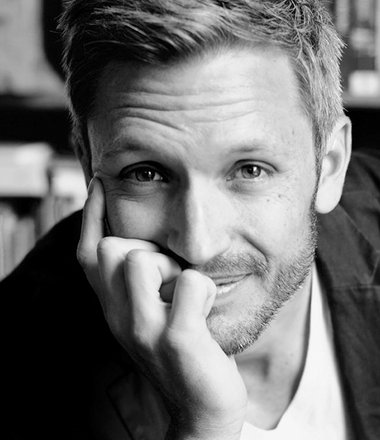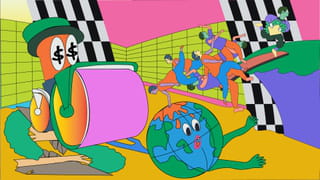
Over the past few years, the world’s leading Earth system scientists and climatologists have published a series of groundbreaking papers on the concept of “planetary boundaries”. They argue that life on Earth depends on a delicate balance of interlocking geological processes, including climate, forests, ocean chemistry and biodiversity.
While this system can withstand significant pressure, things begin to break down past a certain boundary – and that’s what’s happening right now. These scientists are warning that human economic activity has overshot most of the planetary boundaries and is now destabilising the Earth system. We’ve entered a zone of dangerous uncertainty and are at risk of triggering potentially irreversible tipping points.
Why we’re publishing a series on billionaires
Excess is not worth celebrating
When it comes to ecological impact, we know that the richer you are, the more damage you do. This pattern is evident across a wide range of indicators.
Take carbon dioxide emissions, for example – the main gas that causes global warming. The richest 10% of the world’s population is responsible for more than half the world’s total carbon emissions since 1990. That’s a staggering figure. A small portion of humanity is consuming the atmosphere that we all rely on. And things become even more lopsided as we climb the income ladder. An individual in the richest 1% emits 100 times more than an individual in poorest half of the human population.
In an era of ecological breakdown, excess is literally deadly
Why is this? According to recent research published by scientists at the University of Leeds, it’s not only that rich people consume more stuff than everybody else, but also because the stuff they consume is more energy-intensive: huge houses, big cars, private jets, business-class flights, long-distance holidays, luxury imports and so on. And it’s not only their consumption that matters – it’s also their investments. When the rich have more money than they can possibly spend, which is virtually always the case, they tend to invest the excess in expansionary industries that are quite often ecologically destructive, like fossil fuels and mining.
Knowing how income correlates with ecological breakdown should make us think twice about how our culture idolises rich people. There is nothing worth celebrating about their excesses. In an era of ecological breakdown, excess is literally deadly.
Inequality is also destructive in subtler ways. Sociologists have found that inequality generates status anxiety. It makes people feel that what they have is inadequate. It creates constant pressure for people to earn and buy more – not because they actually need it, but because they want to approximate the consumption habits of richer people just to feel that they have some modicum of dignity.
A team of researchers at the University of Warwick found that people who live in highly unequal societies are more likely to shop for luxury brands than people who live in more egalitarian societies. And it’s never enough: we keep buying more stuff in order to feel better about ourselves, but it doesn’t work because the benchmark is pushed perpetually out of reach. This treadmill of anxiety-induced consumption generates extraordinary ecological damage.
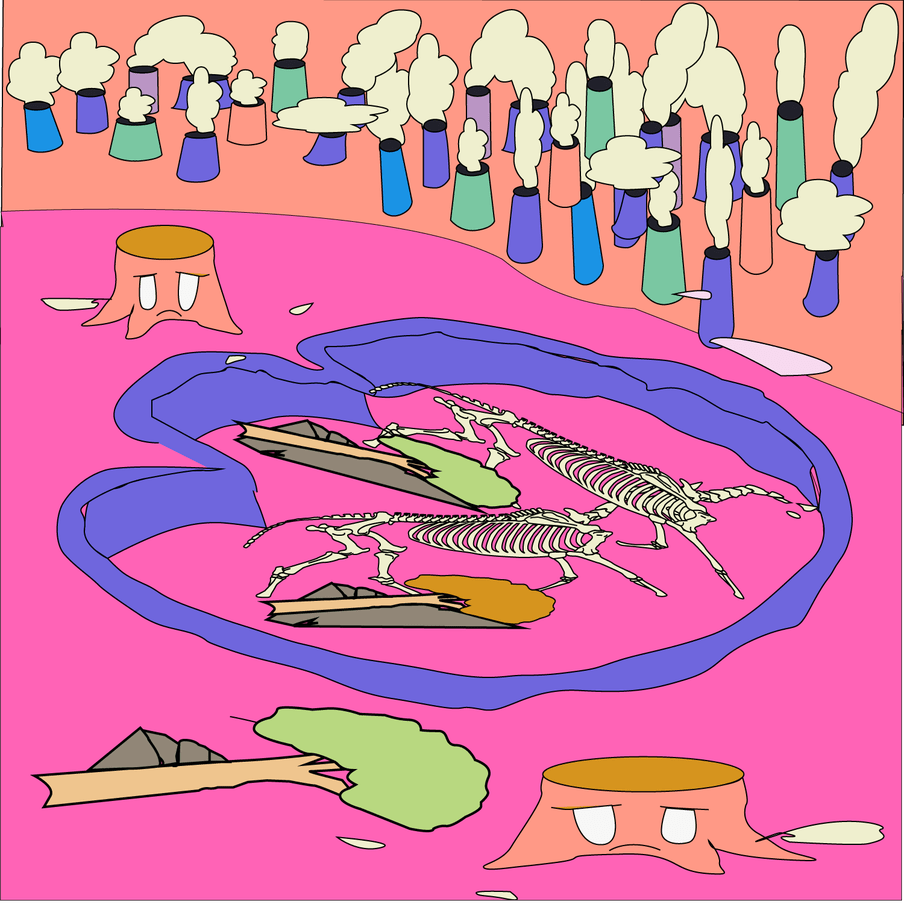
Who benefits from growth?
But there’s another issue that we need to pay attention to here, and it has to do with how our economy works. We live in an economy that is organised around perpetual expansion, or “growth”, which we measure in terms of Gross Domestic Product (GDP). GDP has to grow exponentially just so the system can stay afloat. This might be fine if GDP was just plucked out of thin air, but it’s not. On the contrary, it is tightly coupled to ecological impact; the more we grow the economy, the more pressure we put on planetary boundaries.
One of the ways that scientists track this relationship is by looking at an indicator called Material Footprint, which tallies up all the material stuff that nations extract and consume each year – everything from plastic to fish, timber to metal – all of which has an impact on living ecosystems. When we plot Material Footprint over time, we see that it rises steadily in lockstep with GDP.
This puts us in a bit of a bind. We know that GDP growth is driving ecological breakdown; indeed, the data on this is so clear that scientists are now calling for governments to abandon growth as an economic objective. But for decades, we’ve been told that we need more growth in order to improve people’s lives. How are we supposed to reconcile these two?
The first step is to recognise that, when it comes to human wellbeing, it’s not growth that matters – it’s how income and resources are distributed. And right now they are distributed very, very unequally. The richest 1% alone capture $19tn in income every year, which represents nearly a quarter of global GDP. That adds up to more than the GDP of 169 countries combined – a list that includes Norway, Sweden, Switzerland, Argentina, all of the Middle East and the entire continent of Africa. The rich lay claim to an almost unimaginable share of the income from global GDP growth.
And in case you think that the rest of the GDP is distributed more evenly, it’s not. The richest 5% (whose average income is $100,000 per year) capture no less than 46% of global income. In other words, half of all our economic activity – all the mines, all the factories, all the power stations, all the shipping, and all of the ecological impact that’s associated with these things – is done to make rich people richer. The next time someone tells you that we need economic growth in order to improve people’s lives, it’s worth remembering whose lives are really being improved.
Once we grasp this fact, it becomes clear that growth is an inefficient and ecologically destructive way of achieving our social goals. We don’t need more growth – at least, not in rich countries. What we need is a fairer distribution of income. By sharing what we already have more fairly, we can improve people’s lives without needing to plunder the Earth for more.
Over and over again, the evidence points to the fact that billionaires – and millionaires, for that matter – are incompatible with planetary boundaries. If we want to live on a safe and habitable planet, we need to do something about inequality. This argument might sound radical, but it is widely shared among researchers who study this issue. The French economist Thomas Piketty, one of the world’s leading experts on inequality and climate, doesn’t mince his words: “A drastic reduction in the purchasing power of the richest would in itself have a substantial impact on the reduction of emissions at global level.”
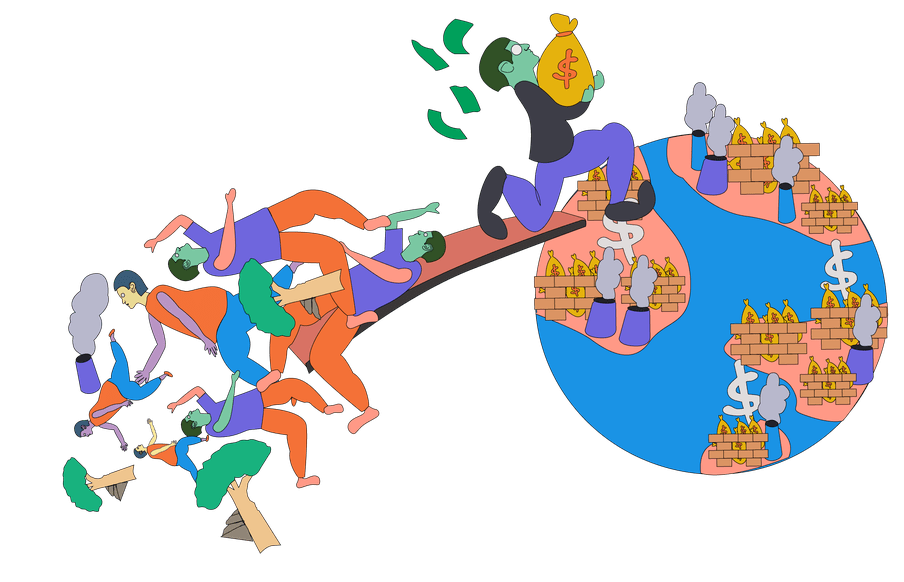
So what do we do?
One approach would be to introduce a cap on wage ratios – what some have called a maximum wage policy. Sam Pizzigati, an associate fellow at the Institute for Policy Studies, argues that we should cap the after-tax wage ratio at 10 to one. This is an elegant solution that would immediately distribute income more fairly, and it’s not unheard of.
Mondragon, for instance – a huge workers’ co-operative in Spain – has rules stating that executive salaries cannot be more than six times higher than what the lowest- paid employee receives in the same enterprise. This could be done on a national scale, too, by saying that incomes higher than a given multiple of the national minimum wage would face a 100% tax.
Once we realise that excessive income destroys the ecology on which our civilisation depends, we can choose to limit that too
Policies like this make intuitive sense to people. A 2017 poll found that a majority of the British public are in favour of a maximum wage policy. After all, we choose to limit all sorts of things that are dangerous in excess. We limit how fast you can drive your car on public roads, how much alcohol you can drink before driving, how much sugar can be in children’s breakfast cereals. We limit smoking in public spaces, addictive substances and weapons sales. Once we realise that excessive income destroys the ecology on which our civilisation depends, we can choose to limit that too.
What’s exciting about this approach is that it has a direct positive impact on human well-being and on the living world. As societies become more egalitarian, people become happier, less anxious and more content with their lives. They develop a greater sense of solidarity with their neighbours and peers, which means they feel less pressure to pursue ever-higher incomes and more glamorous status goods. Equality helps liberate people from the rat race of perpetual consumerism. This is why researchers find that more egalitarian societies tend to have significantly less ecological impact.
Take Denmark, for example. Consumer studies show that, because Denmark is more equal than most other high-income countries, people buy fewer clothes – and keep them for longer – than their counterparts elsewhere. And firms spend less money on advertising, because people just aren’t as interested in unnecessary luxury purchases.
An unbalanced society means an unbalanced ecology
But it’s not just income inequality that’s a problem – it’s wealth inequality too. In the United States, for instance, the richest 1% have nearly 40% of the nation’s wealth. The bottom 50%, by contrast, have almost nothing: only 0.4%. On a global level, it’s worse still: the richest 1% own around half of all the wealth in the world.
The problem with this kind of inequality is that rich people become rentiers. Because they accumulate money and assets far beyond what they could ever use, they rent it out to others who don’t have these things – be it in the form of properties, patent licences, loans, whatever. The income they get from this is called "passive income", because it accrues automatically to people who hold assets without any labour on their part. But from the perspective of everyone else it is anything but passive: people have to scramble to work, produce and earn beyond what they would otherwise need – which creates additional ecological impact – simply in order to pay rents and debts to people living in wealth.
People have to scramble to work, produce and earn beyond what they would otherwise need – which creates additional ecological impact – simply to pay rents and debts to people living in wealth
In a way, it’s a bit like modern-day serfdom. And just like serfdom, it has serious consequences for our living world. Serfdom was an ecological disaster because lords forced peasants to extract more from the land than they otherwise needed – all in order to pay tribute. During the feudal period in Europe, this led to a progressive degradation of forests and soils. When societies are unbalanced, ecologies become unbalanced too. Something similar is happening today: all of us who owe rents and debts are under tremendous pressure to find ways to pay tribute to people with wealth.
One way to solve this problem is with a wealth tax – an idea that is presently gaining a lot of steam. The economists Emmanuel Saez and Gabriel Zucman have proposed a 10% annual marginal tax on wealth holdings over $1 billion. This would push the richest to sell some of their assets, thus distributing wealth more fairly and cutting rent-seeking behaviour. The upshot is that the rich would lose their power to force us to extract and produce more than we need, and as a result, remove pressure from the living world.
Progressive taxation has another ecological benefit: it generates revenues that can be invested in universal public services, like healthcare, education, transportation, affordable housing and so on. This is important, because expanding universal services is the single most powerful way to deliver high levels of well-being for all without needing to pursue high levels of GDP.
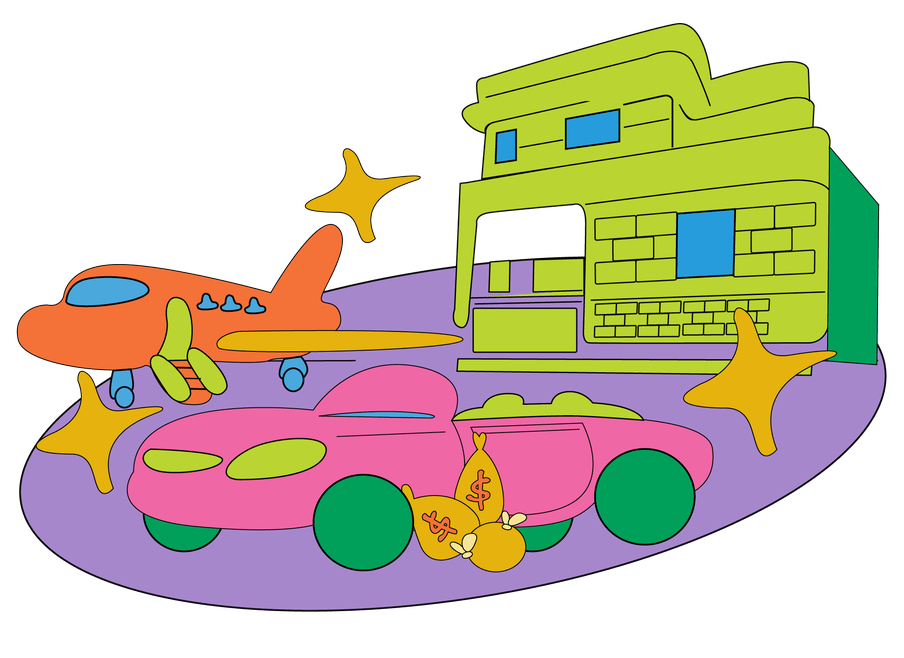
The danger of inequality
Given the severity of our ecological crisis, perhaps we should be more ambitious than what Saez and Zucman propose. After all, nobody "deserves" extreme wealth. It’s not earned, it’s extracted – from underpaid workers, from nature, from monopoly power, from political capture and so on. We should have a democratic conversation about this: at what point does hoarding become not only socially unnecessary, but actively destructive? $100m? $10m? $5m?
The ecological crisis – and the science of planetary boundaries – focuses our attention on one simple, undeniable fact: that we live on a finite planet, and if we are going to survive the 21st century, then we need to learn to live on it together. Toward this end, we can take lessons from our ancestors. Anthropologists tell us that, for most of human history, most people lived in societies that were actively and intentionally egalitarian. They saw this as an adaptive technology. If you want to survive and thrive within any given ecosystem, you quickly realise that inequality is dangerous, and you take special precautions to guard against it. That’s the kind of thinking we need.
There is an extraordinary opening for this right now. The Covid-19 crisis has revealed the dangers of having an economy that’s out of balance with human need and the living world. People are ready for something different.
Clarification: a previous version of this article stated that the richest 1% of humanity emitted 100 times the CO2 of the poorest half. This has been clarified to "an individual in the richest 1% emits 100 times more than an individual in the poorest half of the human population".
Dig deeper
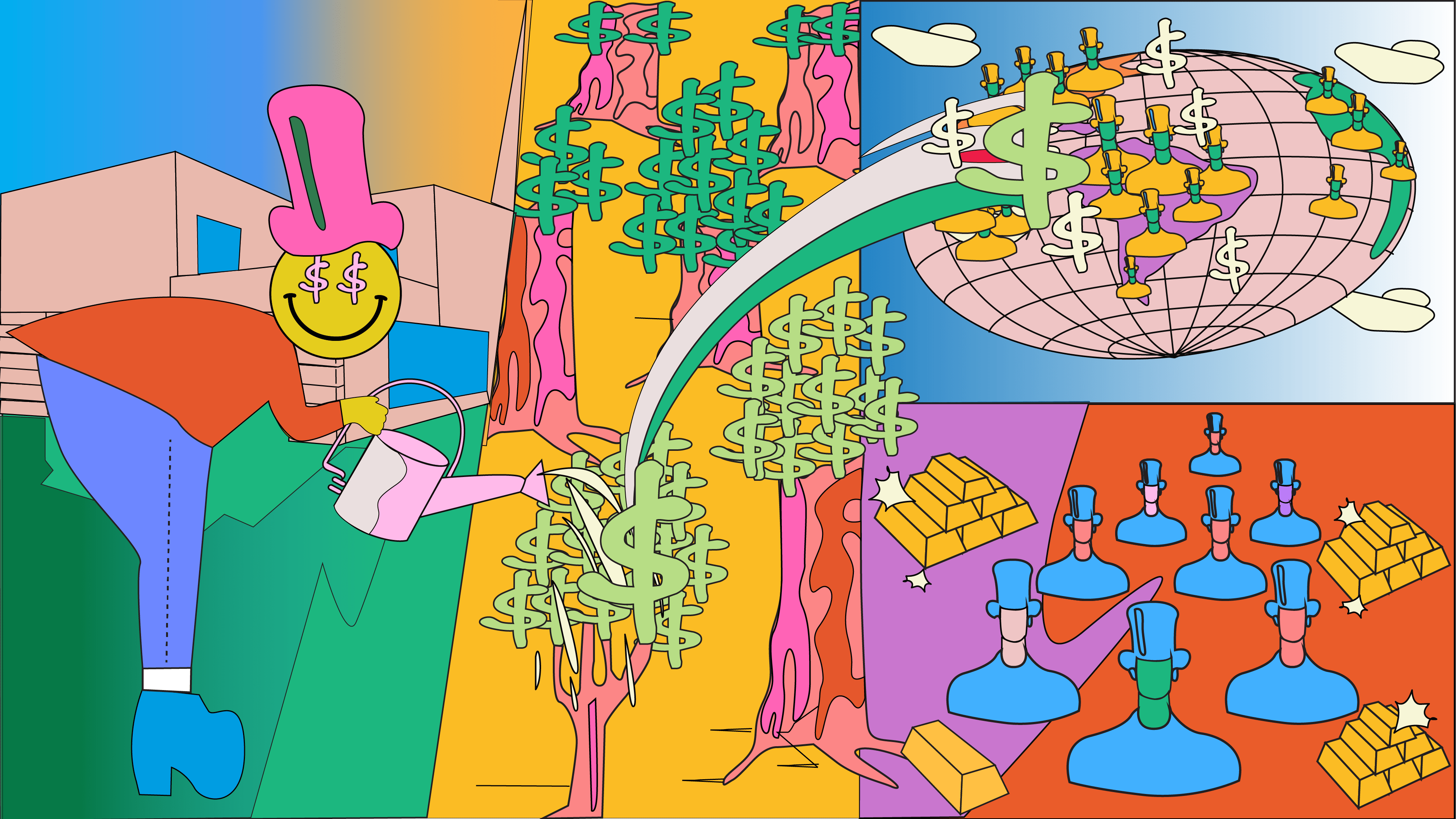 There’s no such thing as a self-made billionaire
For all their talent or intelligence, a person stranded on a desert island with no technology, infrastructure or labour wouldn’t be able to amass extreme wealth. Understanding that no one can claim that they fully deserve what they earn is the first step to addressing wealth inequality.
There’s no such thing as a self-made billionaire
For all their talent or intelligence, a person stranded on a desert island with no technology, infrastructure or labour wouldn’t be able to amass extreme wealth. Understanding that no one can claim that they fully deserve what they earn is the first step to addressing wealth inequality.

